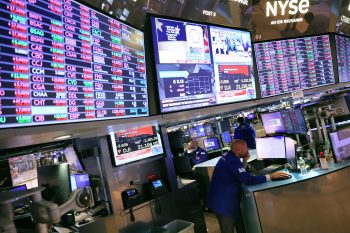The best kind of bad news
TEXT OF STORY
Scott Jagow: Wall Street is generally filled with worriers. They worry about retail sales. They worry inflation. Oil prices. Corporate profits.
But when things don’t turn out as bad as they expected, investors get really happy. Stocks they sold with abandon yesterday are bought up like they’re the last shares on Earth today.
This morning, JPMorgan Chase said profits fell 53 percent in the second quarter, but JP’s shares are up and bank stocks are rallying across the board. Things weren’t as bad as expected.
Marketplace’s Steve Henn has a little Psych 101.
Steve Henn: Wall Street’s glee over a wave of bad financial reports may seem counterintuitive to us, but James Angel, a business professor at Georgetown University, says it all makes perfect sense.
James Angel: The thing about the market is it’s always trying to look two or three steps ahead so that if people are anticipating a particular bit of bad news, when the news finally comes out, at least it wasn’t worse than we were expecting, so that in and of itself is paradoxically good news.
So if bad news can be good news, can good news be bad news?
Well, yeah. Pretend for a second we all got big fat raises this month so we could cope with high fuel bills and surging food costs. That would make inflation worse and Mark Zandi at economy.com says markets would freak.
Mark Zandi: Because the Federal Reserve would tighten monetary policy, rates would rise and that would hurt.
And it wouldn’t just hurt Wall Street; it would hurt Main Street too.
In Washington, I’m Steve Henn for Marketplace.
There’s a lot happening in the world. Through it all, Marketplace is here for you.
You rely on Marketplace to break down the world’s events and tell you how it affects you in a fact-based, approachable way. We rely on your financial support to keep making that possible.
Your donation today powers the independent journalism that you rely on. For just $5/month, you can help sustain Marketplace so we can keep reporting on the things that matter to you.


















